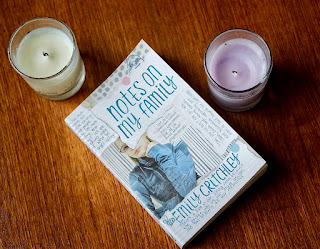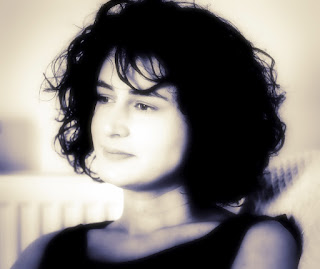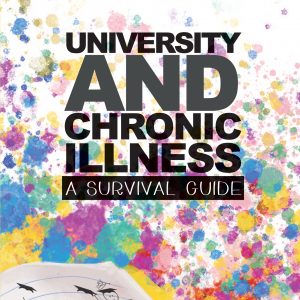‘I wonder if Mum will be Mum again when she comes home. I wonder if she will remember that she tried to steal clothes from Debenhams and that she burnt our photographs in a saucepan. I wonder if she will remember that Dad is having an affair with a girl who, only last year, was too young to legally drink alcohol’.
Today I’m talking to author Emily Critchley about her debut YA novel, Notes On My Family. As one of my absolute favourite reads of the year, I jumped at the chance to chat to her more about it…
At the beginning of the story, we see that the Coulson Family are in the midst of some… unusual life situations, to say the least. What on Earth gave you the inspiration for the family and their dramas? How did these characters come to you?
I knew I wanted to write about a dysfunctional family. I had the opening scene at the dinner table in my mind, the one where Lou’s dad tells he family he’s having an affair with a sixth form student. I let the characters react to the situation, which told me a great deal about their personalities. The rest of the story grew organically from that point. I learnt more about the characters as I wrote them!
Throughout the novel, there are instances where we see that the main character Lou is clearly, as she says herself, ‘different to other people’. Although dyspraxia is mentioned in passing, there is no concrete mention of any other non-neurotypical condition. Was the choice to omit this information a deliberate one and if so, why?
Yes, this was a deliberate decision. It became clear to me, the more I got to know Lou, that she was on the autistic spectrum. Although she knows she’s different, Lou doesn’t know that she is on the spectrum and neither do those around her. This felt right to me. The book is all about aspects of Lou’s life rather than about the fact she is autistic. I have Aspergers and didn’t receive my diagnosis until I was an adult. Although Lou isn’t me and her life isn’t based on my life, her teenage experiences are closer to mine in this way; feeling different but not knowing why, finding it hard to maintain friendships, being bullied at school.
[Side note from me: this recent tweet of Emily’s had me wanting to get up and give it a standing ovation. Carry on.]
Another one of Lou’s quirks that I found particularly fascinating was the way she attributed colours to particular things, such as days of the week. When writing these parts, how did you decide what day was what colour? Was it a conscious decision that Saturdays were good days for purple vegetables?
Yes, Lou has synesthesia, a condition which joins objects such as names, letters, numbers, or days of the week with other sensory perceptions like smells, flavours or, in Lou’s case, colours. Lou told me that Saturdays were a good day for purple vegetables!
One of my favourite things about Notes On My Family was how unique Lou’s narrative voice was throughout: I found the contrast between her matter-of-fact commentary and the unusual and upsetting life events she was commentating on to be particularly unique. How did you get the balance between creating a hilarious yet slightly heart-breaking read just right? TELL US YOUR WAYS.
Being a teenager is hard and Lou’s life in Notes on My Family is often difficult and confusing but laughter is an important medicine and I knew I wanted there to be humour in the book to provide a contrast to the darker times. Where there is darkness, there is light. There are tender and emotional moments in Notes on My Family because, for me, that’s how life is: we laugh, we cry, we feel despair, we make mistakes, we remember what’s important to us, sometimes all in the space of a single day.
~
‘I like old fashioned stations because I like to imagine all the people over all the years who have sat on the same bench with their suitcases waiting for the train. People waiting at stations with their luggage are always on their way somewhere. They are always on the point of leaving. This is a little like life. I have always thought of life as being a platform, or a waiting room. We try and find things that will fill the time until our train arrives’.
~
Thanks for chatting with me, Emily! I really do recommend giving Notes On My Family A Go: grab a copy of your own from 23rd November onwards, and let me know what you think. In the meantime, find out more about Emily here and be sure to follow her on her socials too. Yay!
Notes On My Family was also included in my July-September Books You Need In Your Life Post. Check out my other bookish stuff if you like, and don’t forget to let me know if you have any recent YA recommendations of your own! What are you reading at the moment?








